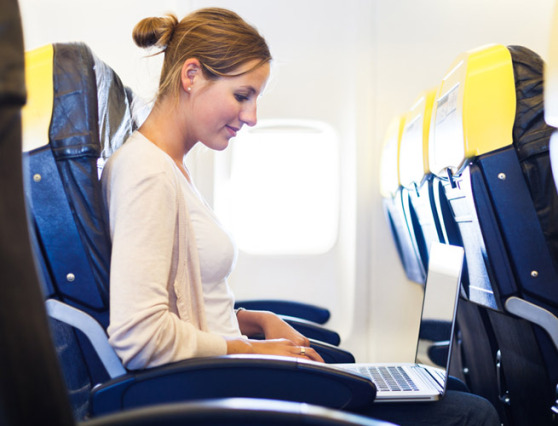The Federal Aviation Administration will strongly consider relaxing its rules on the use of electronic devices during flights.
Facing pressure from tech-savvy passengers and the press, the FAA is likely to allow digital devices, including e-books, as well as videos and podcasts. However, the ban on making phone calls and sending text messages is expected to remain in place.
A panel of experts will meet this week to investigate the safety concerns for passengers and airline crew. Some people are concerned that cellular signals may interfere with cockpit instruments, but the evidence has been anecdotal at best.
The New York Times reports that the panel will make recommendations to the FAA, and these changes will likely go into effect next month.
Passengers expect to work on flights and are increasingly forgetting to power down devices or are simply ignoring requests from flight attendants. A study by the Airline Passenger Experience Association and the Consumer Electronics Association found that 30 percent of passengers believe they have accidentally left a device on during takeoff or landing.
Another big shift is the prevalence of Wi-Fi on domestic routes — professionals increasingly expect to get work done during the flight. According to a report by Routehappy.com, a website that ranks airlines, 38 percent of U.S. flights now offer Internet connectivity.
The FAA has a tough job ahead: The agency will need to alleviate the safety concerns of flight attendants and some safety-conscious passengers while adapting to the demands of the digital age.
VentureBeat's mission is to be a digital town square for technical decision-makers to gain knowledge about transformative enterprise technology and transact. Learn More

